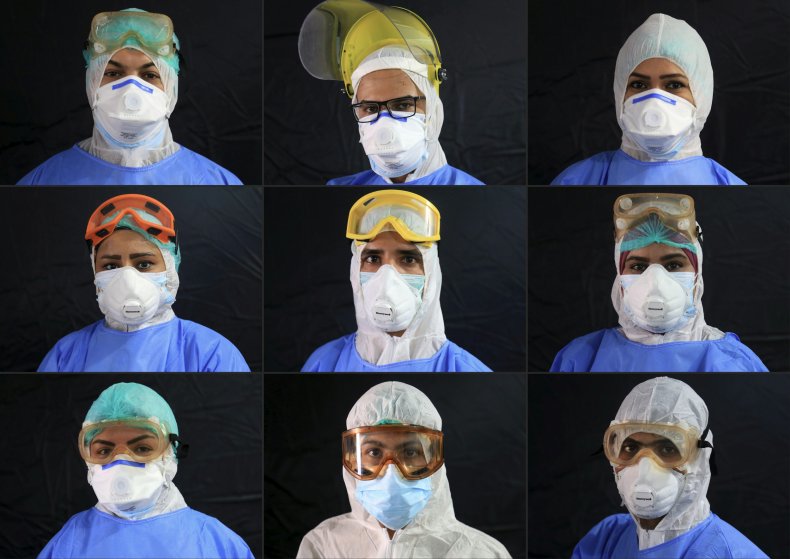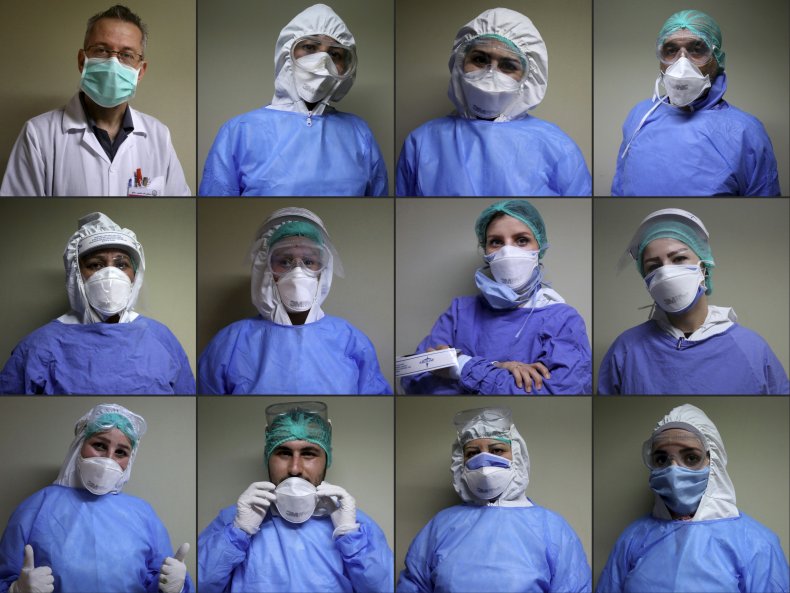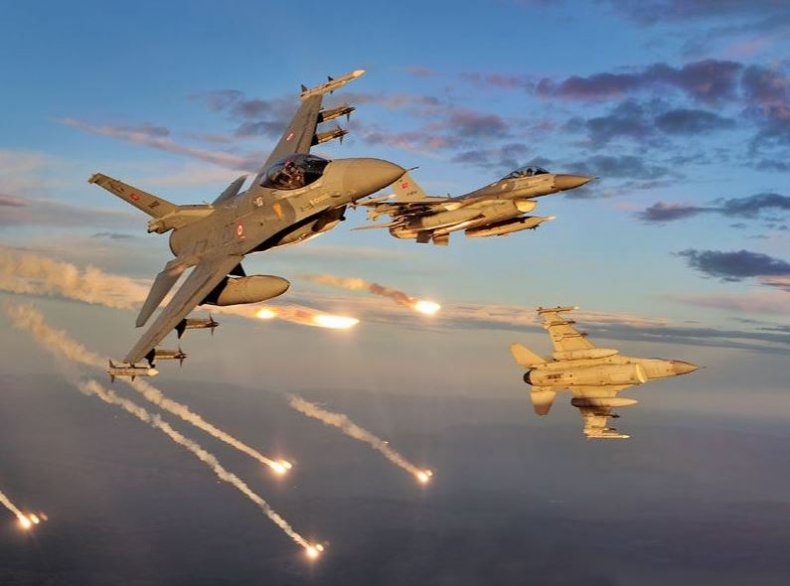Turkey has pressed on with military campaigns against Kurdish forces in Iraq and Syria despite the novel coronavirus compounding the troubles of local populations in both conflict-torn countries.
Turkey has fought for decades with the insurgent Kurdistan Workers’ Party (PKK), a group that has established positions in neighboring Iraq and Syria. On Wednesday, the Turkish Defense Ministry announced that its forces had “neutralized” 18 PKK fighters operating in Iraq’s northern Qandil Mountains.
The Iraqi Foreign Ministry challenged this account, however, summoning the Turkish ambassador after what it said Thursday was “a Turkish army fighter plane violating Iraqi airspace, and bombing a refugee camp near Makhmur that claimed the lives of two women.” Baghdad’s top diplomat Mohamad al-Hakim urged his Turkish counterpart “to stop such serious violations and respect the principles of good-neighborliness.”
The following day, however, Turkish forces again reportedly attacked across the border, this time in northern Syria.
Both the state-run Syrian Arab News News Agency and pro-opposition Syrian Observatory for Human Rights reported Friday that Turkish troops and allied Syrian rebels launched rocket attacks near villages in the Hasakah province, a region under the control of the Syrian Democratic Forces, a Kurdish-led, U.S.-backed militia that Turkey considers to be an arm of the PKK.
Both Washington and Ankara—members of the NATO Western military alliance—consider the PKK to be a terrorist organization due to its guerrilla campaign against Turkey, but the group has complex relations with Iraq and Syria, both of which seek to balance Turkish and Kurdish ties. The U.S. has also allied with Kurdish forces that consider themselves separate from the PKK to fight the Islamic State militant group (ISIS) in both countries.
The jihadi group’s lighting gains across the region prompted interventions from various international forces, including Iran, Russia and a U.S.-led coalition. With ISIS largely defeated, war-torn Iraq and Syria face a new, rapidly-spreading foe: COVID-19.
The novel coronavirus that has infected more than 2.2 million across the globe poses major challenges for even the world’s most developed health care systems and has put those in Iraq and Syria at especially dire risk. While Iraq has confirmed only 1,482 cases and Syria a mere 38, the real figures are believed to be higher due to lack of testing.
Turkey, a population more than twice that of Iraq and nearly five times that of Syria, has recorded over 78,000 cases of the disease. Only Iran, with a comparable population and just over 79,000 cases, registered higher in the Middle East where Turkey was not the only actor to continue clashes.
ISIS has ramped up attacks in Iraq and Syria in an effort to reassert itself on the battlefield. The militants targeted both the Syrian Democratic Forces and the Syrian military in positions across Syria’s southeastern desert, and have stepped up ambushes against both Iraqi troops and militiamen as well, drawing U.S. strikes against the jihadis south of Kirkuk on Monday.
The Syrian Observatory for Human Rights has also reported on repeated rival Syrian and Turkish strikes in Syria’s northwestern Idlib province, where insurgents and militants have both attempted to advance against government positions supported by Russia and Iran.

MOHAMMED SAWAF/AFP/GETTY IMAGES

LOUAI BESHARA/AFP/GETTY IMAGES
The coronavirus pandemic has prompted international appeals for peace. United Nations Secretary-General António Guterres called last month for an “immediate global ceasefire in all corners of the world.”
“It is time to put armed conflict on lockdown and focus together on the true fight of our lives,” he added in a video appeal. “To warring parties, I say: Pull back from hostilities. Put aside mistrust and animosity. Silence the guns; stop the artillery; end the airstrikes. This is crucial to help create corridors for life-saving aid. To open precious windows for diplomacy. To bring hope to places among the most vulnerable to COVID-19.”
Also taking up the cause was French President Emmanuel Macron. The leader told Radio France Internationale on Tuesday he had secured the support of U.S. President Donald Trump, Chinese President Xi Jinping and U.K. Prime Minister Boris Johnson—who was treated for COVID-19—in calling for a global truce. He said he expected the backing of fifth U.N. Security Council leader, Russian President Vladimir Putin, as well.
In a statement published Wednesday, the Syrian Democratic Forces voiced their support for these efforts.
“We, in the General Command of the Syrian Democratic Forces, at a time when we affirm that this initiative serves humanity and is in the framework of supporting efforts to combat the coronavirus, we also affirm our commitment to any resolution that supports the United Nations call launched by Mr. Antonio Guterres on March 23, 2020, in which he called for an international truce,” the group wrote.
“These worthy efforts led by President Macron will have an effective role in combating the pandemic, and we hope that it will be an essential step for establishing a sustainable global peace based on dialogue, not wars,” it added.

